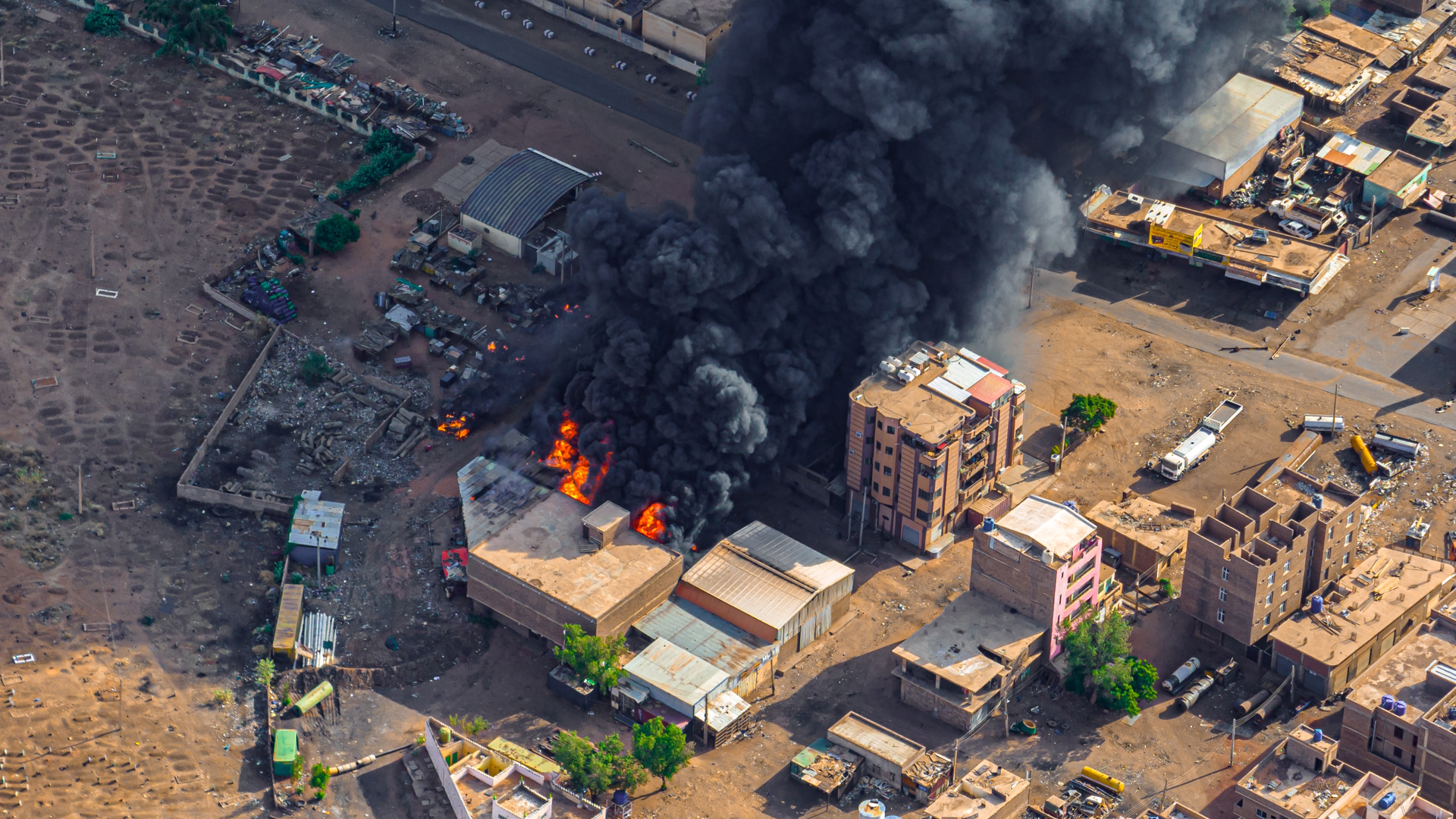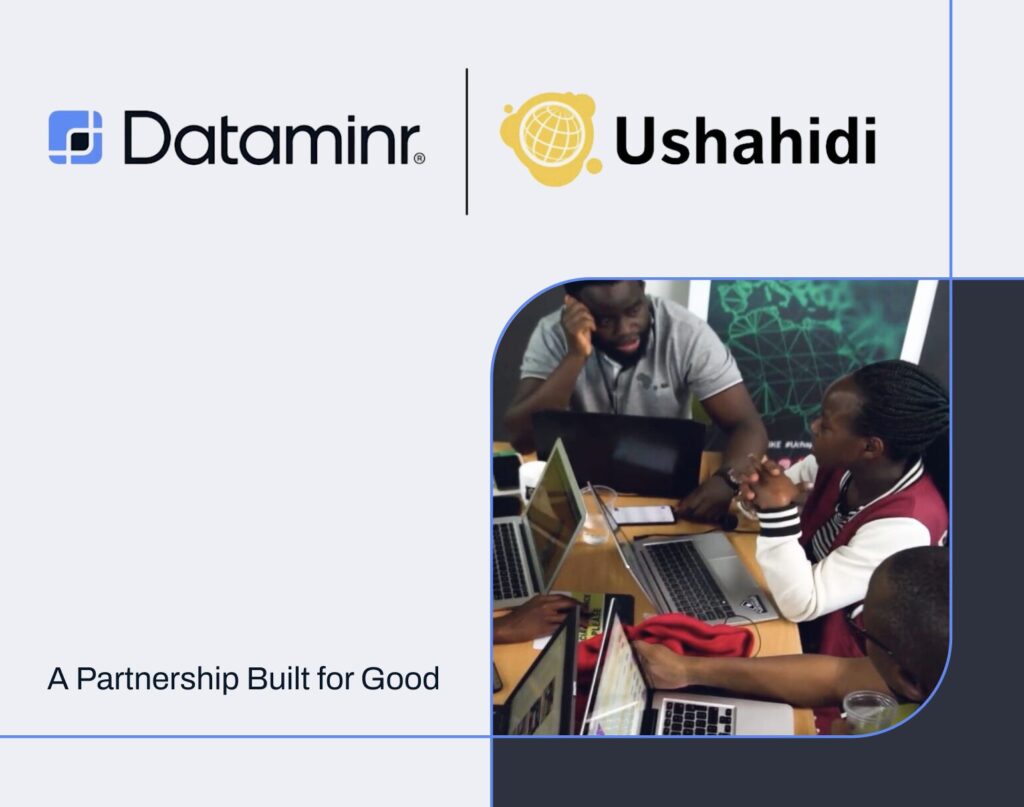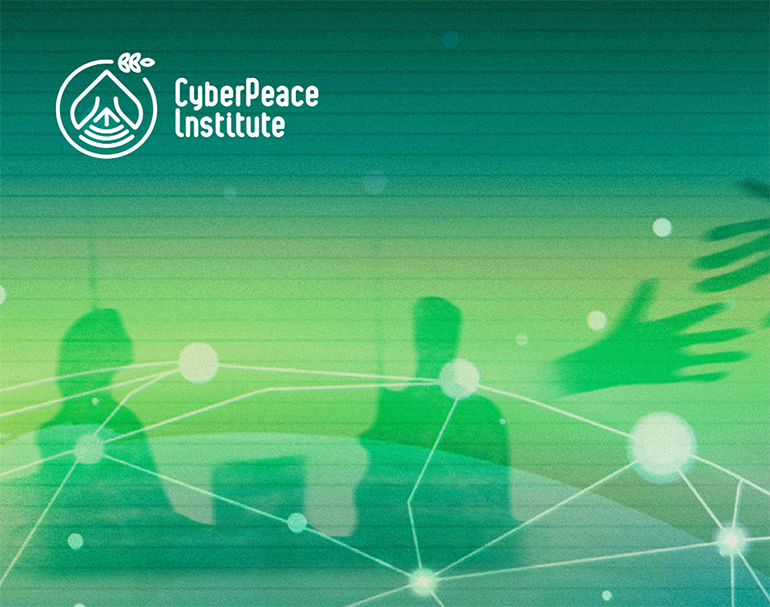The Sudanese civil war is in its second year and has escalated to critical levels, leading to what the United Nations has called one of the world’s worst humanitarian crises. Up to 150,000 people have been killed, and more than 10 million people—about a fifth of Sudan’s population—have been displaced.
When the conflict began in the capital city, Khartoum, in April 2023, humanitarian organizations like Pact and Save the Children were confronted with the urgent need to evacuate staff amidst rising violence.
We spoke with Michael Frayne, Pact Global Security Director, and Ludovico Carlino, Global Security Analyst at Save the Children, to learn how Dataminr’s First Alert product helped them to orchestrate the evacuations safely and efficiently.
About Pact:
- International nonprofit founded in 1971
- Operates in nearly 40 countries building solutions for human development and sustainable social impact
- Supported 2.5 million people in 2023 with knowledge, skills and resources to combat disease, gain electricity, build peace and democracy, fight poverty through entrepreneurship, protect local natural resources, adapt to climate change, stop child labor and human rights abuses and more
- Dataminr customer since 2020
About Save the Children:
- Founded in 1919
- Operates in 100+ countries to give children a healthy start in life, the opportunity to learn, and protection from harm
- In 2023, Save the Children programs and partners helped 105.9 million children in 115 countries become healthier, safer and better educated
- Dataminr customer since 2019
Evacuation challenges
As the fighting in Khartoum intensified, both Pact and Save the Children initiated plans to relocate their personnel to safety. The dynamic security situation presented an immediate challenge. Both organizations had to ensure the safety of staff while maneuvering through the complex logistics of an evacuation, such as roadblocks and uncertainties in and around Khartoum. They required up-to-the-minute information to make rapid and effective decisions.
Dataminr’s real-time alerts were instrumental in enabling Pact and Save the Children to adapt their plans as the situation evolved, choose the safest routes and avoid areas of heightened risk.
Evacuating Pact employees
Prior to using First Alert, Pact was heavily reliant on local updates through messaging apps such as WhatsApp and Signal. These sources often delivered information after critical events had occurred, hampering timely decision making.
Since becoming a Dataminr customer, Frayne said he is able to leverage First Alert’s real-time information to bridge the gap between local intelligence and timely, actionable insights, shifting Pact’s security approach to a proactive stance.
“It was like night and day [after using First Alert],” said Frayne. “It took me a long time to get my head around the power of the information I have at my fingertips.”
During the evacuation of Pact personnel from Khartoum, the alerts allowed Frayne to coordinate seamlessly with field teams and global leadership, ensuring that all parties were aligned and informed of the latest developments. In one instance, when an early morning alert indicated escalating tensions, Frayne and his colleagues immediately strategized an evacuation route to navigate through conflict zones, avoiding potential dangers that could have compromised staff safety.
Having real-time information from Dataminr is like having eyes on the ground without being there.
The speed at which Frayne was notified of the situation astonished his colleagues on the ground. “They were very, very surprised that I was aware of the situation at that time because they knew I was in the U.K., and it was between five and six o’clock in the morning.”
According to Frayne, Dataminr proved itself to be “the most invaluable tool and resource that I had in my hand at the time.” In the first few hours of the conflict—involving clashes between two Sudanese rival armed factions—First Alert provided Frayne with visual context, giving him a more complete understanding of the situation on the ground.
He was also able to stay up-to-date with the events unfolding, such as bombing near the staff’s location and disruptions on their travel path, and reported them to key stakeholders to make sure his colleagues in Sudan were out of harm’s way.
“Having real-time information from Dataminr is like having eyes on the ground without being there,” said Frayne. “Dataminr proved its worth a hundred times over because I had no other information.”
Evacuating Save the Children humanitarian employees
As an open-source intelligence (OSINT) expert, Carlino has seen significant benefits from integrating First Alert into Save the Children’s broader OSINT framework.
“Without the help that I get from Dataminr, it would be impossible to conduct my daily event monitoring and social media data analysis on 90 countries and 10 crises at the same time,” said Carlino.
In particular, Carlino emphasized the importance of having real-time data in his analysis during the Sudan conflict, in which he was tasked with helping senior leadership and local teams understand the risks associated with critical movements in and around Khartoum. For example, he needed information about specific checkpoints along evacuation routes and airstrike distribution in certain areas of the city to inform security teams in the field, helping them come up with the safest route out of Khartoum.
We really worked against the clock to find an opportunity to get out of Khartoum…real-time data was very useful because we needed that kind of information coming in.
“Dataminr enabled me to keep track of the different developments on the ground and use that information for my evacuation, relocation and scenario analysis.”
With First Alert’s real-time information, Carlino was able to conduct analysis and create recommendations that allowed Save the Children to respond to changing circumstances with speed, agility and precision.
“We really worked against the clock to find an opportunity to get out of Khartoum,” said Carlino. “[Dataminr’s] real-time data was very useful because we needed that kind of information coming in—without spending too much time looking for it—while working on contingency plans.”
According to the United Nations, 2023 was the deadliest year on record for humanitarian workers. There is more work to do, but these successful evacuations of humanitarian personnel from Khartoum in April 2023 highlights the vital role of real-time information in crisis response and emergency management.
By providing real-time situational awareness, Dataminr enables organizations like Pact and Save the Children to safeguard their staff as they provide life-saving food and aid to the Sudanese people, as well as the roughly 2 billion people living in areas impacted by conflict worldwide.
Discover First Alert
See how public sector organizations and agencies use First Alert to stay ahead of breaking news and high-impac events.
LEARN MORE



